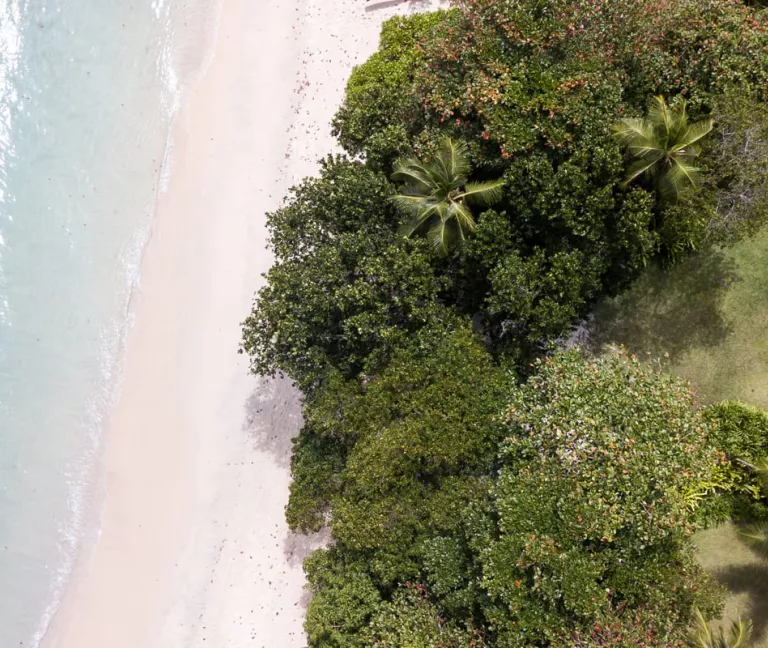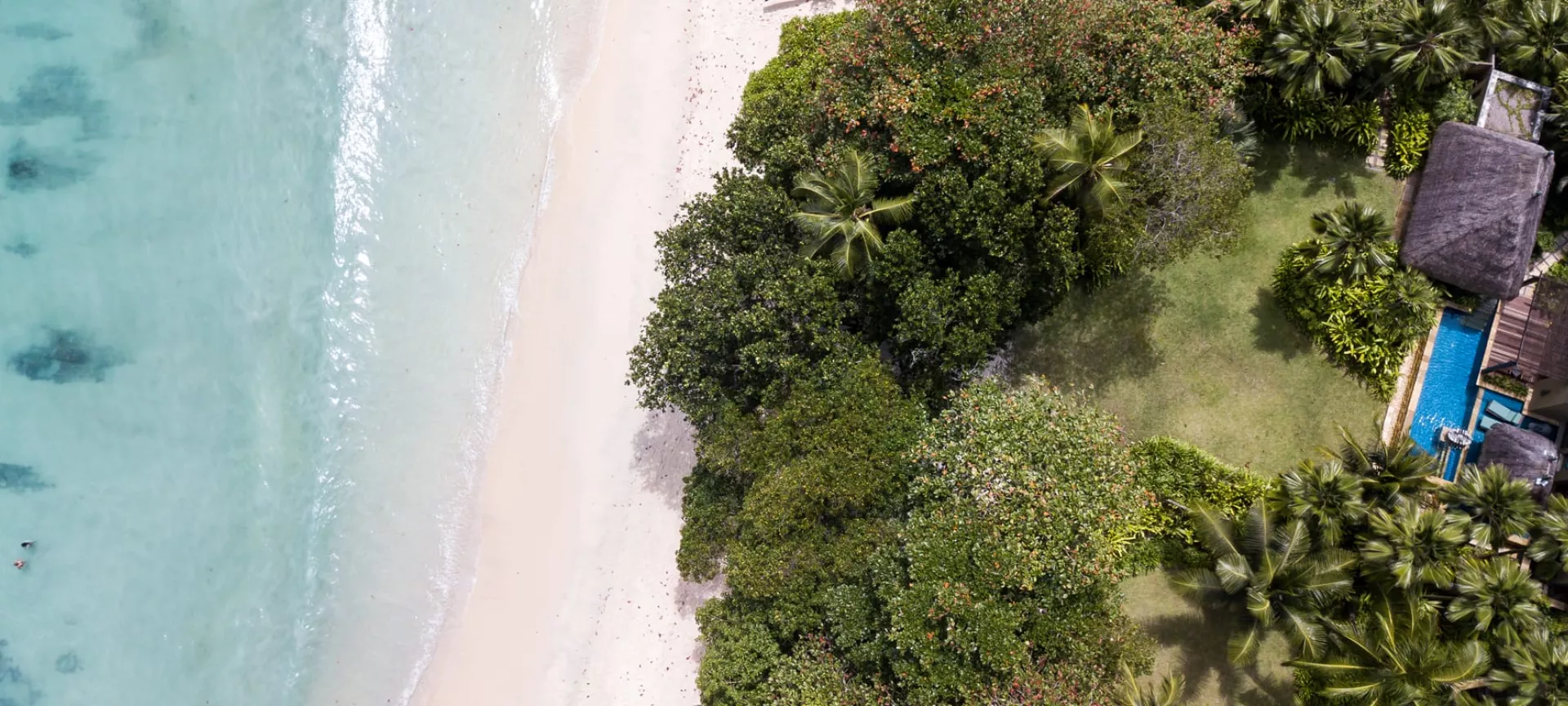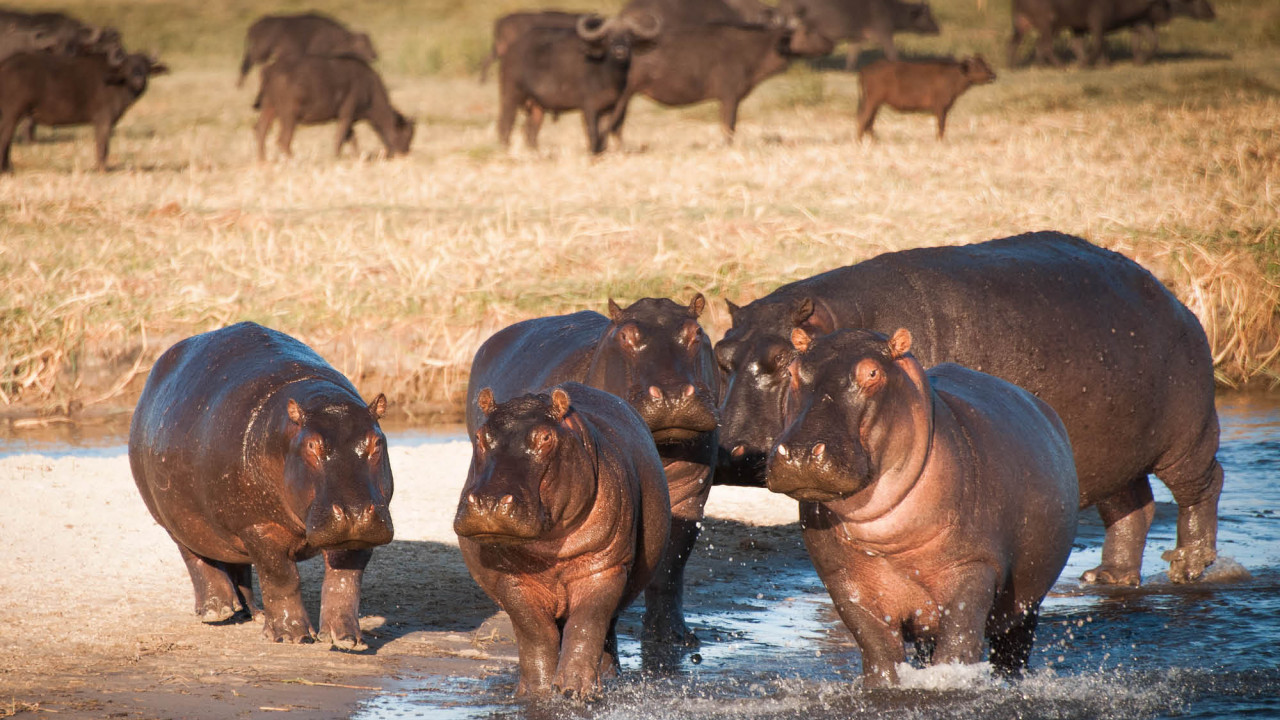
The humble hippo, one of the most beloved animals in Africa, boasts a whole host of bizarre and brilliant facts.
Did you know their closest living relatives are cetaceans (dolphins)?!
Read on to find out more:
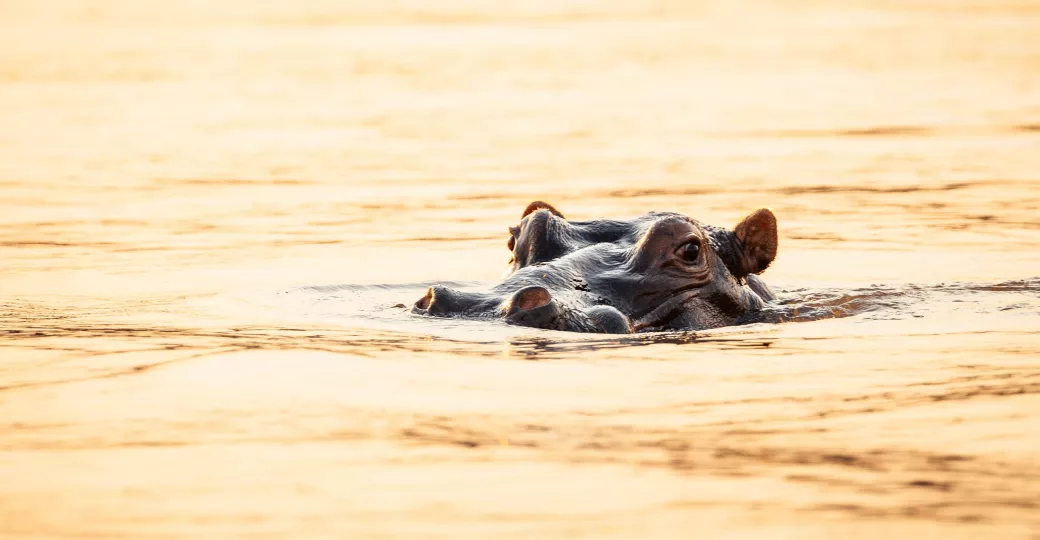
A hippo at sunset - Toby Pheasant
The name Hippopotamus originates from the Ancient Greek word meaning ‘river horse’.
They’re the 6th heaviest land mammal on earth with male adults averaging 1,500 kg (3,310lb) and females 1,300 kg (2,870lb).
With a lifespan of 45 – 50 years, hippos are gregarious, living in pods of up to 200 strong in summer (other collective nouns include crash, bloat, herd or dale).
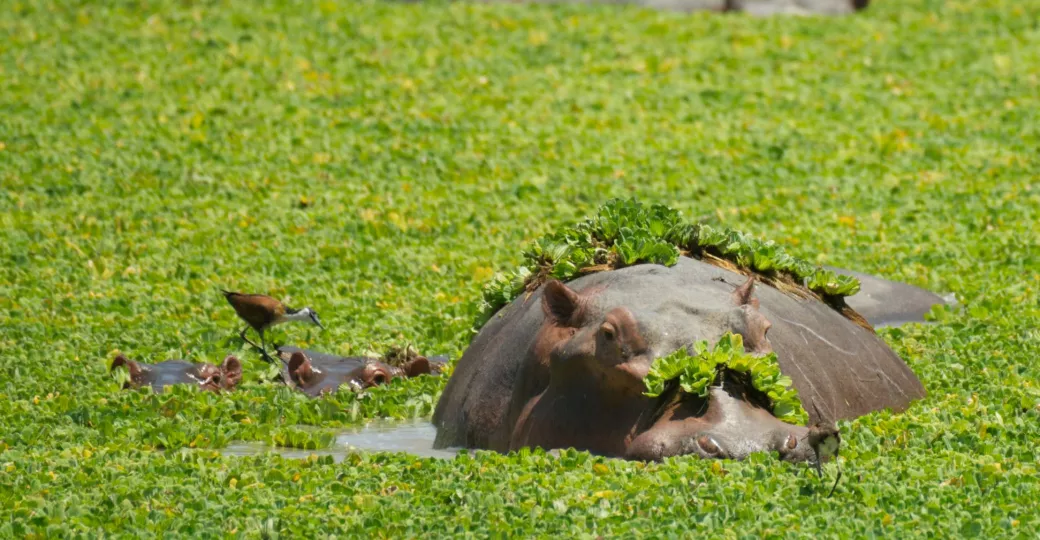
Hippos in the weeds in Zambia's South Luangwa National Park - James Handley
During the day, hippos remain cool by staying in the water or mud. They ‘bask’ on the shoreline and secrete an oily red substance, giving rise to the myth that they sweat blood.
The liquid is actually made up of highly acidic compounds that act as skin moistener, a sunblock and also inhibits the growth of disease-causing bacteria.
They have large teeth and tusks that they use for fighting off others that they see as threats.
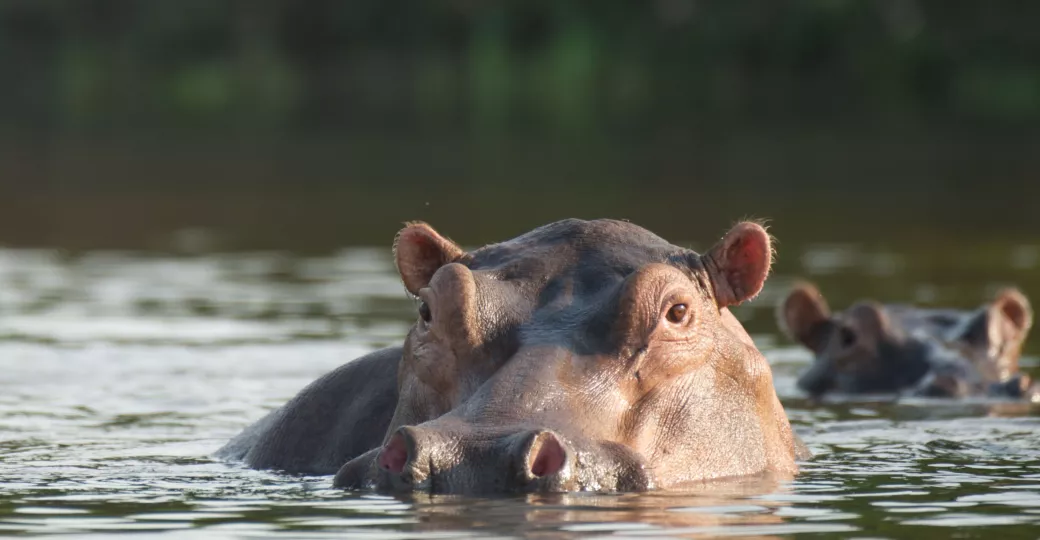
Hippos in the weeds in Zambia's Lower Zambezi National Park - James Handley
Hippos inhabit rivers, lakes and mangrove swamps, where territorial bulls preside over a stretch of river and groups of five to thirty females and young.
Both reproduction and childbirth occur in water. After an 8-month gestation period, mother and young join ‘schools’ that provide some protection against crocodiles, lions, and hyenas.
Their milk is as thick as yogurt and can sometimes contain some of the same oily red substance, making it appear slightly pink in colour.
The milk is so rich, it’s said to contain over 500 calories per cup!
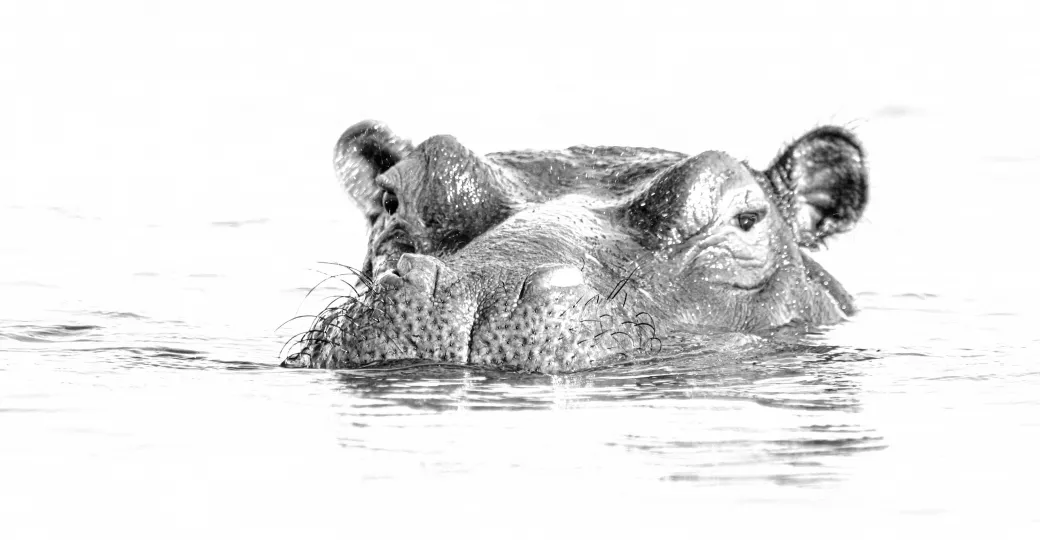
A hippo in the Okavango Delta, Botswana - Toby Pheasant
Hippos emerge at dusk to graze on grasses. They can travel on land for up to 10km to feed. They spend four to five hours grazing and can consume 68 kg of grass each night.
Considering their enormous size, a hippo’s food intake is proportionally low.
Despite their stocky shape and short legs, hippos can easily outrun most humans. They have been clocked at 30 km/h over short distances!

A hippo our of water in Tanzania's Ngorongoro Crater - Anders J
The hippopotamus is one of the most aggressive creatures in the world and is often regarded as one of the most dangerous animals in Africa. If threatened on land however, it will often run for water.
They are understandably very territorial - water is not only their home but also their life-line as they are very prone to sun exposure.

Hippos can be very territorial animals - Zulnureen Shariff
Hippopotamuses appear to communicate vocally, through grunts and bellows.
They mark their territory by defecation. While depositing the faeces, hippos spin their tails to distribute their excrement over a greater area. There’s a charming fable about this that we’ll cover in a separate notebook entry…
An adult hippo needs to resurface every 3 – 5 mins to breathe. The process of surfacing and breathing is automatic – even when sleeping underwater a hippo will bob up to the top of the water so that they can take a breath, and then they sink back to the bottom.
Having all of their vital sensory organs on the same plain, hippos only need to raise their heads slightly to have their ears, eyes and nose above the water.
Contrary to popular belief, hippos are very poor swimmers. They get around underwater by walking on the bottom.
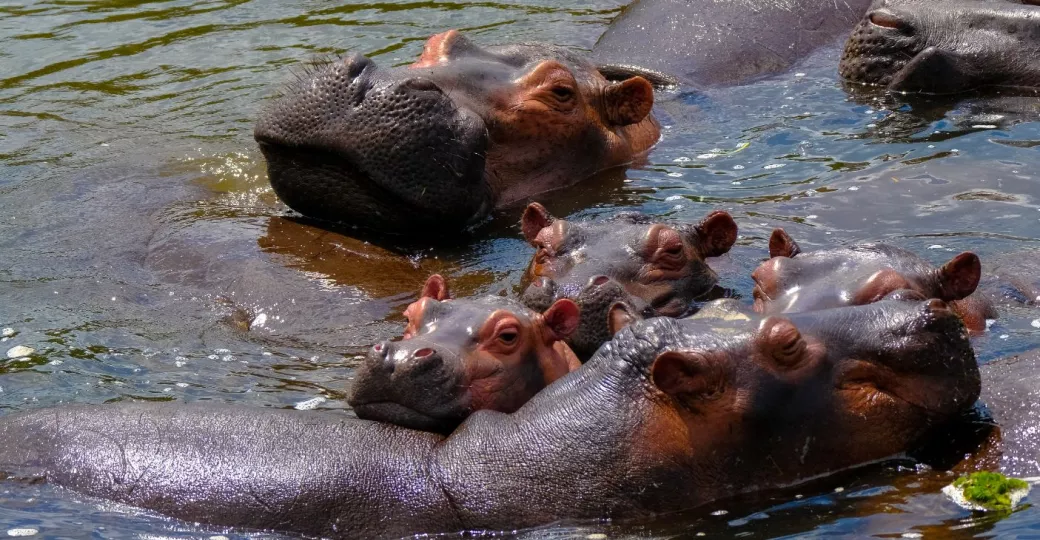
A pod of hippos relaxing together - Francesco Ungaro
The ancestors of hippos were among the first large mammals to colonise the African continent, long before those of any of the large carnivores, giraffes or bovines.
Their closest living cousins are cetaceans (whales, porpoises, etc.) from which they diverged about 55 million years ago.
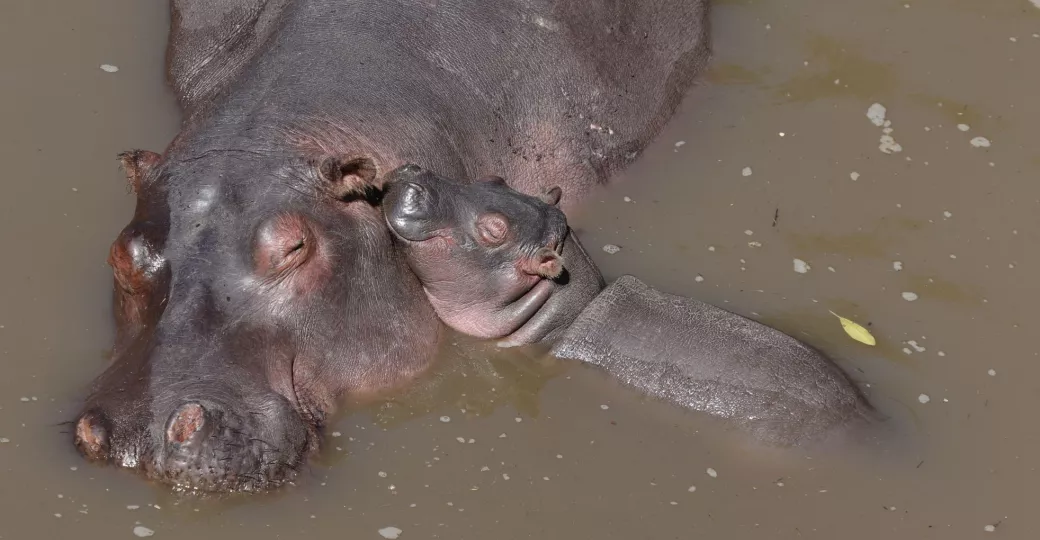
A mother hippo and her calf - Henrik Hansen
Which animal would you like to find out more about? Send us a message and we'll write a list of unique animal facts on your favourite African animal.

James Handley
Born and bred in the South of England, James is Bonamy’s intrepid traveller. When not honing his skills in London over the last decade, he's spent much of his time on self-planned expeditions and a...
View profileNever miss a notebook entry with our newsletter

